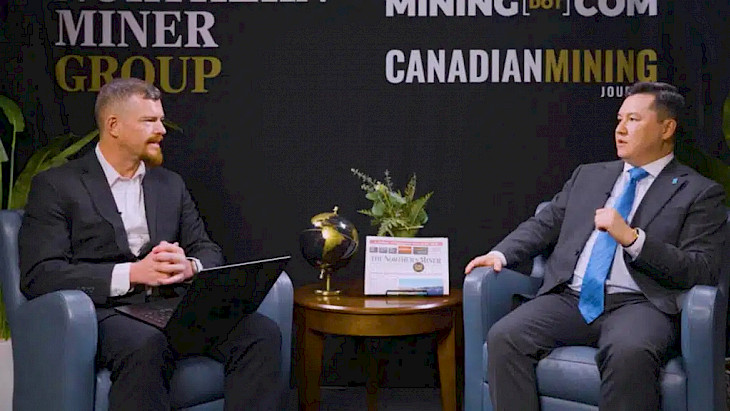The value of Kazakhstan's mineral reserves has been estimated at $40 trillion by Renat Bekturov, the head of the Astana International Financial Centre (AIFC). He made this statement during his visit to Toronto, Canada, in March. According to Kursiv.kz, Bekturov believes that Canadian companies could participate in the development of these resources.
“Kazakhstan expects that its mineral reserves, valued at $40 trillion, will trigger a mining boom,” said Bekturov. He noted in Toronto last month that to attract investors, the state-backed AIFC offers a clear and modern regulatory framework, along with simplified processes for investors, according to Mining.com.
Since 2018, more than 3,600 companies have registered with the AIFC. The center took 4.5 years to register its first 1,000 companies, two years for the second 1,000, and just one year for the third 1,000.
“We are open for business… I invite all Canadian investors and mining companies to come and explore Kazakhstan,” Bekturov said during the annual event of the Prospectors & Developers Association of Canada (PDAC) in Toronto.
An interview with Bekturov was also published on Northern Miner, where he highlighted Kazakhstan’s vast reserves of uranium, copper, titanium, chromium, and critical minerals. According to him, Kazakhstan potentially has 5,000 undiscovered mineral deposits worth a total of $40 trillion, but the country needs investment for their development.
Among successful examples of cooperation, he mentioned the Canadian company Cameco, which extracts uranium in southern Kazakhstan. Bekturov also recalled the interest of BHP and Rio Tinto in exploring deposits in the country. Additionally, he noted that Polymetal International plc (later renamed Solidcore Resources plc), previously registered in the UK, was listed on the AIFC Exchange (AIX).
Bekturov believes that Canadian investors and mining companies could explore cooperation with Kazakhstan, including in the development of junior mining firms and through structures like SPACs (Special Purpose Acquisition Companies), which could be utilized in the local market. SPACs are companies specifically created to merge with private firms seeking to go public without undergoing the traditional IPO process. This mechanism allows retail investors to make direct investments in promising companies, sometimes using borrowed funds.
Junior mining companies are those that hold geological exploration licenses and are typically in the early stages of exploration, without generating revenue from mining operations. As a result, they are particularly interested in securing funding for exploration and confirming their reserves.
At the end of February, Minister of Industry and Construction Kanat Sharlapayev (who was replaced a few days later by Yersayin Nagaspayev) told Kursiv that companies from the US, the EU, and China could acquire rights to Kazakhstan’s rare earth and critical metal deposits through auctions held in the country. He noted that competition among key players in the critical materials market - used in dual-use technologies, renewable energy, electric vehicles, and other industries - could allow Kazakhstan to secure higher revenues.
CentralasianLIGHT.org
April 9, 2025

